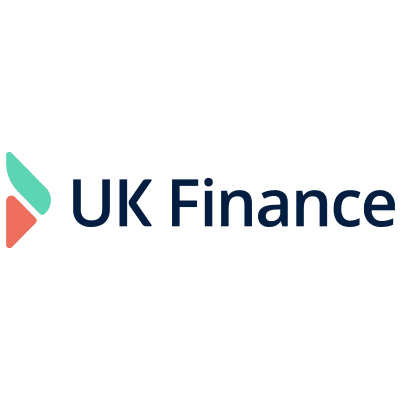How to Improve Your Credit Score
Whether you’re trying to secure new funding or not, having a business credit score is very important. Your credit score is based on your credit history so in order to have a score, you need to have at some point taken out a form of credit.
This can be something as simple as a mobile phone contract that you pay every month. Any arrangement where you’ve taken out credit on something that you repay in instalments will help contribute towards your credit score in the UK.

How to measure your business and personal credit score
Your personal credit history includes personal and financial records (just like a phone contract as mentioned above, or any overdue bills) which credit reference agencies use to calculate your score. This is a number out of 999 (for Experian), 700 (Equifax) or 710 (TransUnion). The higher the number, the better your score and the more likely you are to be approved for credit.
The three agencies mentioned are the UK based companies that funders will check with for your personal score. Some will only check with one agency, others may look at all three.
Your personal credit score can have an impact on that of your business; when a potential funder looks into the history of your business, they will often run a credit check on the directors too. The two aren’t truly linked unless you are the sole proprietor of the business.
In addition to Experian and Equifax mentioned above, CreditSafe is popular for business credit checks. The scoring system is slightly different for business checks, often being a number out of 100 for creditworthiness.
Why is credit score important?
For starters, without a business credit score you will struggle to be approved for credit especially types such as loans, credit cards and mortgages. But there are other reasons that having a better credit score can benefit you.
Business finance
As the director of a business, your personal credit score will play a part alongside the score of your business itself. If you have a poor score or any financial judgements against you, then your business’s chance of getting credit can be harmed by association.
Funders may see you as lower risk
A higher credit score proves that you have been capable of repaying any credit agreements you have had, so funders will consider you at a low risk of non-payment which increases your chances of getting approved.
- Credit score is only a representation of financial history, not an indicator of future events.
Quicker approval for credit when you apply and access to more offers
With better chances of approval, the time frame is often quicker too. You’ll also have a wider range of offers available to you.
Lower interest rates on borrowing
One of the best perks of having an excellent credit score, is being eligible for lower interest rates on what you do end up borrowing for your business! This helpfully means a lower overall amount that you pay back.
Higher credit limits
While this one is definitely a bonus if you need to borrow a certain amount, it’s something you also should be mindful of. It’s easy to fall into the trap of using whatever credit is made available to you which can make it harder to pack back in the long run. A good credit score can also make you eligible for increases in your credit limit but you don’t have to accept these so be sure to tell your funder if this is the case.
Tips for improving your credit score
If you have no history of borrowing for your business, it can be difficult to secure funding. Any funders you approach won’t have much information to go on for how credit worthy your business is, and you could end up with much higher interest rates and fewer options. To prevent this, here are some steps you can follow now to improve your business credit score and make sure you have access to extra cash should you need it.
Take out a line of business credit
While we’ve just said that it might be difficult to do this without a business credit history, there’s no better way to begin building one up than taking out a line of credit where you can. This can be something as simple as purchasing your office furniture on finance and paying in monthly instalments, or having credit with your office stationery supplier and paying the debt regularly. You could even be eligible for an unsecured business loan or a business overdraft on your company account.
Make prompt repayments
This one goes without saying but becoming behind on payments is an easy trap to fall into. Setting up direct debits for credit payments rather than manually paying a bill is the easiest way to keep up.
Only use what you need and keep usage low
It is recommended that you use a small percentage of your credit limit whether this be on a credit card or on an overdraft. Credit reference agency Experian advises that a lower percentage use is seen in a more positive light by prospective lenders.
Remove, where possible, any negative financials
If you’ve had any CCJs in the last six years, defaults on any payments that caused a funder to close an account, or a financial association with someone whose credit is bad, this can affect your credit score.
Additional ways to improve your personal score
The above tips can also apply to your personal credit improvement, but below are some ones that are more specifically beneficial.
Register on the electoral roll
Registering doesn’t mean you’re obligated to vote (though you may be called for jury service as a result), and you can remove yourself from the open register if privacy is a concern. By being on the electoral roll, you help funders confirm your name and address and make sure that you are who you say you are! This also minimises the risk of fraudulent behaviour.
Be vigilant about fraud
It’s wise to keep an eye on any transactions on a credit card just to make sure that each one has definitely been made by you, and if not be sure to report them to your provider so they can be corrected. Although it’s rare, identity fraud can seriously affect your credit score too, as the bad credit activity made by someone else will be associated with your name.
Have some bills under your name
If it isn’t already, having your name on utility bills can help boost your rating. These bills are a form of credit and prove that you can and do pay owed money on time (provided you do this, of course!).
How often to check your credit score
Any improvements you make to your score won’t be immediate. It can take up to three months for changes to reach the credit reference agencies so if you’re applying for credit during this time, you may not get the results you’re after.
The best times to check your score are if you’re moving or if you’re changing jobs, and when applying for credit. If you’re concerned about fraud, it’s also a good idea to double check your credit report on a regular basis.




